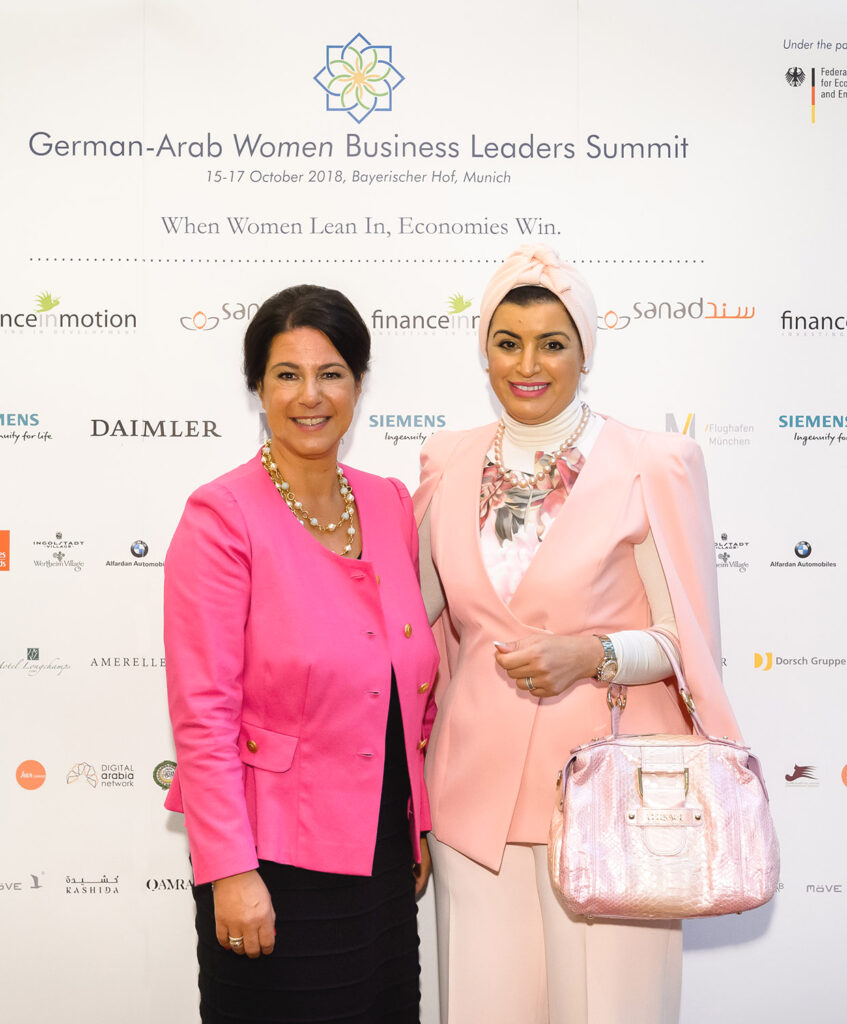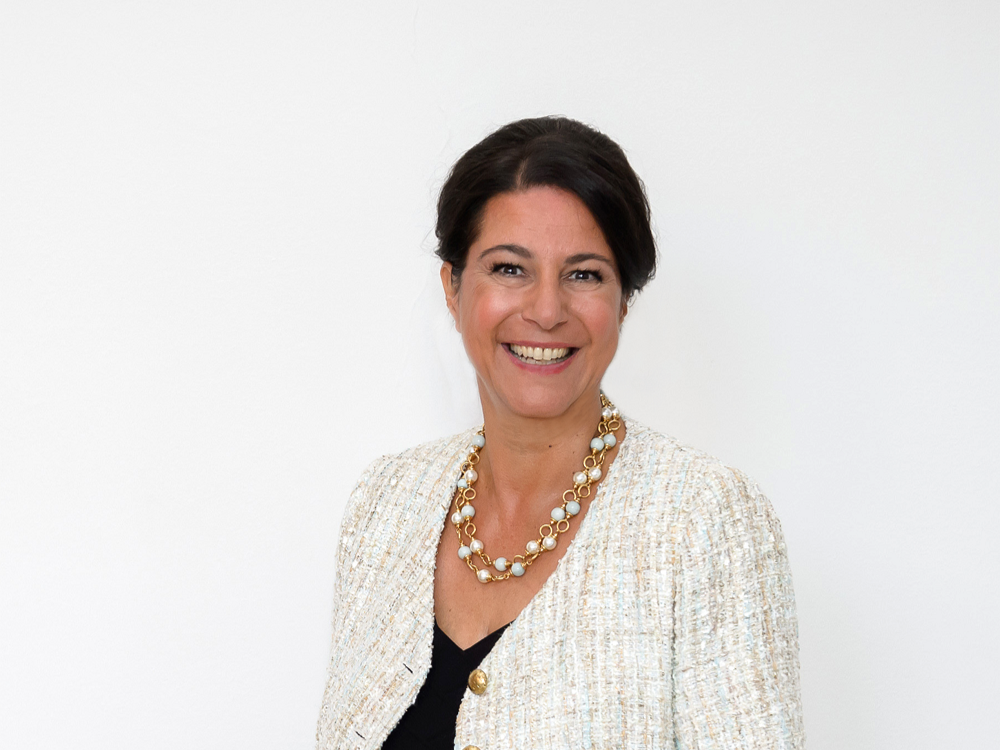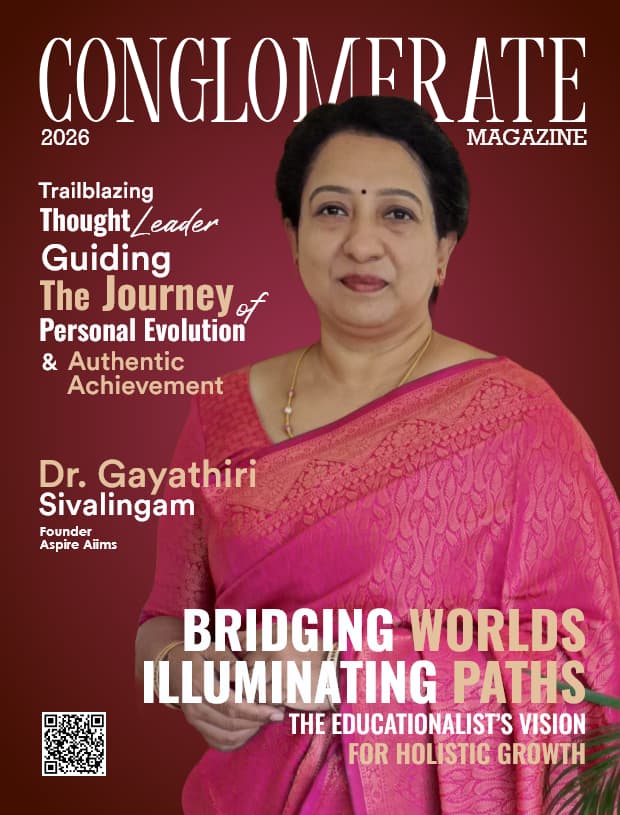In today’s interconnected world, few leaders have mastered the delicate art of bridging cultures quite like Dr. Gabi Kratochwil. As Founder and Owner of CrossCultures, she has pioneered an approach to global leadership that transcends traditional boundaries—one that places cultural intelligence and women’s empowerment at the heart of organizational success. This month’s cover story explores how her unique journey shaped a visionary who has spent over two decades building bridges across continents, and examines the philosophy behind her impact on cultural transformation worldwide.
A Global Consciousness Forged Through Cultural Immersion
Gabi’s journey begins in the 1990s as a student of Middle Eastern Studies, Politics, and Public Law. What may seem like a standard academic path was transformed by a pivotal year that took her “from the Rhine to the Nile,” studying at the American University in Cairo and living with an Egyptian host family.
“I’ll never forget my incredible host mother, Auntie Raifa—a force of nature, full of warmth, wit, and determination,” Gabi reflects. “She shattered every stereotype I had grown up with and sparked a deep curiosity in me about the lives and strength of women in the Arab world.”
This formative experience became the catalyst for what would eventually evolve into a celebrated career in intercultural training and coaching. From that moment forward, Gabi encountered inspiring women across the region—in universities, back rooms, cafés, offices, workshops, and boardrooms—who shared common threads of courage, resilience, and determination to shape their societies.
These early experiences instilled in her a profound understanding that would define her professional approach: “Behind every culture are individuals with powerful stories, and real connection begins where stereotypes end.”
For Gabi, cultural training was never merely about understanding differences. From her earliest professional endeavors, she viewed her work as building bridges—creating spaces “where misunderstanding turns into meaningful dialogue.” This philosophy eventually crystallized in her founding of CrossCultures in 2002, where she has pioneered approaches to intercultural leadership that honor diversity while driving sustainable impact.
Cultural Intelligence: A Business Imperative
At the core of Gabi’s methodology lies a research-backed approach that positions Diversity and as part of it Cultural Intelligence (CQ) not as an optional soft skill but as a fundamental business advantage driving measurable market success.
“Diversity is a strategic advantage backed by hard data,” Gabi explains. “Studies by McKinsey have consistently shown that companies in the top quartile for diversity on executive teams are up to 36% more likely to outperform their peers. Boston Consulting Group found that diverse management teams deliver 19% higher revenue from innovation.”
This perspective represents a departure from traditional diversity approaches. Where others focus exclusively on demographics or surface-level inclusion, Gabi has developed a framework that integrates cultural intelligence as a performance driver:
“True diversity goes deeper than nationalities, languages, or visible difference. It’s about different ways of thinking, problem-solving, communicating, even managing time or handling conflict. It’s sometimes about the invisible boundaries.”
Her approach acknowledges that diversity without intentional effort can actually increase friction. The magic happens when organizations create environments where different perspectives aren’t just tolerated but leveraged—where everyone brings “their own instrument, their own rhythm, their own style” to create something richer than any individual contribution could achieve.
This integrated approach has yielded tangible results across her two decades of practice, as demonstrated by her work with global organizations where culturally intelligent leadership has transformed performance.
The Science of Cross-Cultural Communication
For Gabi, effective cross-cultural communication isn’t just about avoiding misunderstandings—it’s about creating meaningful connections that drive business results and foster genuine human understanding.
“Cross-cultural communication is no longer a soft skill—it’s a core competency in international relations and business today,” she emphasizes. “In a globalized economy, deals are made not just across time zones, but across worldviews. Misunderstandings can derail partnerships as quickly as any market shift.”
Her approach to cross-cultural effectiveness involves three interconnected elements:

- Cultural Decoding: Understanding the underlying values, communication patterns, and behavioral norms that shape interactions across cultures.
- Bridging Differences: Creating frameworks and practices that allow diverse teams to leverage their differences rather than being limited by them.
- Transforming Perspectives: Moving beyond tolerance to genuine appreciation of cultural diversity as a strategic asset.
The effectiveness of this methodology is clearly demonstrated in her work with international teams. Gabi recounts one particularly powerful example: “I once worked with a German and Middle Eastern team negotiating a joint venture. Progress stalled over what seemed like minor issues—until we uncovered that different cultural expectations around hierarchy and decision-making were causing friction. Once we aligned their communication styles, trust was restored and the project moved forward—stronger than before.”
This case illustrates her guiding principle: “Effective cross-cultural communication turns cultural differences from barriers into bridges. If you can’t speak the language of culture, you’re missing half the conversation.”
Case Study: Cultural Intelligence in Action
The transformative power of Gabi’s approach becomes evident through real-world applications. One standout example comes from her work with a global tech company where cultural misunderstandings were hampering collaboration.
“The European managers were frustrated with what they perceived as a ‘lack of initiative’ from their Saudi Arabian team members. Tension was rising and collaboration was stalling,” she explains.
Rather than addressing symptoms, Gabi’s intervention focused on uncovering the deeper cultural dynamics at play:
Before CQ Implementation:
- Team communication was fragmented and often misinterpreted
- Project deadlines were consistently missed
- Workplace satisfaction scores were declining
- Innovation and creativity were stagnant
After Cultural Intelligence Implementation:
- “The managers adjusted their feedback approach to be more indirect and relationship-oriented, while the Saudi team members were coached on how to express ideas more assertively.”
- “Within weeks, project flow improved, cognitive, emotional and benevolent trust deepened, and the team actually co-developed a new client onboarding process that increased satisfaction scores across three regions.”
This transformation showcases the tangible business impact of cultural intelligence integration. As Gabi notes, “This inclusive approach didn’t just resolve the problem, it unlocked a better way of working that no single ‘culture’ could have designed alone.”
Beyond Theory: The Philosophy of Inclusive Leadership
What distinguishes Gabi’s work is her commitment to redefining leadership for a global context. Her approach to inclusive leadership reflects an understanding that sustainable transformation requires more than good intentions—it demands a thoughtful methodology rooted in cultural respect and empowerment.
“Inclusive leadership in today’s globalized world isn’t just about checking diversity boxes,” she explains. “It is about listening to voices you didn’t even know were missing from the room. It’s the ability to lead with cultural humility, to navigate nuance over norms, and to see difference not as a challenge to manage, but as a resource to leverage.”
This philosophy manifests in five key principles that define her approach to developing global leaders:
- Cultural Humility Over Cultural Expertise: Rather than claiming to understand all cultures, effective leaders recognize their limitations and remain curious about different perspectives.
- Empowerment Through Authentic Connection: True leadership creates spaces where everyone feels they belong and can contribute their unique strengths.
- Bridging Instead of Imposing: Successful global leaders don’t force their cultural norms on others but build connections across differences.
- Adaptability With Authenticity: The ability to shift approaches while maintaining core values and identity.
- Purpose-Driven Impact: Leading with a clear sense of why cultural understanding matters beyond profit.
“True inclusive leaders don’t just invite everyone to the table,” Gabi observes, “they redesign the table so everyone feels they belong there in the first place.”
Women’s Empowerment: Redefining the Frame
Throughout her career, Gabi has maintained a particular focus on women’s empowerment—not as a separate initiative but as an integral part of effective global leadership. Her perspective on women’s empowerment reflects her nuanced understanding of how cultural context shapes opportunities.
“Effective women’s empowerment isn’t about adding women to the picture. It’s about changing the frame entirely,” she asserts. “It starts with access: to education, to opportunities, to leadership, to decision-making spaces where real influence happens. But empowerment also requires representation, mentorship, and policies that dismantle systemic barriers – not just individual resilience.”
As Chairperson of the German-Arab Women Business Leaders (GAWBL) network, Gabi has translated this philosophy into tangible impact. She cites the first GAWBL Summit in 2018 as a watershed moment: “It wasn’t just an event—it was a milestone. For the first time, women from across Germany, the Arab world and the international community came together, not just to network, but to genuinely connect, collaborate, and co-create.”
The success of initiatives like GAWBL demonstrates her belief that women’s empowerment must be culturally sensitive and contextually relevant: “Culturally, it means recognizing that empowerment doesn’t look the same everywhere. It’s not a one-size-fits-all concept, it’s a conversation shaped by context, voice, and visibility.”
Her approach emphasizes that when women support each other effectively, the entire professional landscape changes: “Women can support each other in professional settings by shifting from silent competition to international cooperation. That means amplifying each other’s voices in meetings, sharing opportunities instead of hoarding them, and calling out bias – not just when it affects us, but when it affects any woman in the room.”
The Evolution of Women in Global Leadership
Through her 25 years in global cooperation, Gabi has witnessed a significant evolution in women’s leadership—changes that reflect broader shifts in how leadership itself is conceptualized and practiced.
“I’ve witnessed a remarkable shift—not just in the number of women stepping into leadership roles, but in how leadership itself is being redefined,” she observes. “There was a time when women had to adopt traditionally masculine styles to be taken seriously. Now, there’s more space for authentic, diverse leadership voices—collaborative, empathetic, culturally fluent.”
This evolution hasn’t happened by accident. It has required intentional effort, strategic alliance-building, and the courage to challenge established norms. For women leaders in multicultural environments, Gabi identifies three essential qualities:
- Cultural Intelligence: The ability to read, understand, and adapt to different cultural contexts while maintaining one’s core values.
- Confident Adaptability: The capacity to adjust approaches without losing authentic voice or direction.
- Unapologetic Authenticity: The courage to bring one’s whole self to leadership roles, even when that means challenging conventional models.
“Women who lead well across cultures know how to read the room – but also how to redefine the room when needed,” Gabi explains. “They build bridges, are willing to reframe, and they lead not by mimicking dominant styles, but by expanding the definition of what leadership can look like.”
This perspective informs her advice to young women aspiring to leadership roles: “Don’t wait to be invited—claim your seat at the table, and if the table doesn’t exist, build your own. Speak up, even when your voice shakes. Surround yourself with people who challenge you to grow, not just those who agree with you.”
Creating Inclusive Global Platforms
Gabi’s approach to creating more inclusive platforms for women globally reflects her deep understanding of how culture shapes opportunity. Rather than imposing universal solutions, she advocates for context-sensitive approaches that honor local realities while opening new possibilities.
“Creating more inclusive platforms for women globally—especially in underserved regions—starts with listening, not imposing,” she explains. “It means shifting from ’empowering women’ to partnering with them. We need to co-create spaces that respect local contexts, amplify local voices, and provide access to resources, networks, and visibility.”
This philosophy was powerfully illustrated during her work with women entrepreneurs in rural Morocco: “Many of them faced structural, personal and social barriers – but what struck me was their ingenuity and resilience. One participant told me, ‘We don’t need saving. We need a seat at the table—and sometimes just someone who will open the door.’”
This experience reinforced her belief that effective empowerment isn’t about imposing external models but about creating conditions where women’s existing strengths can flourish: “Inclusive platforms aren’t about imposing solutions—they’re about unlocking the brilliance that’s already there.”
The Personal Journey: Navigating Challenges with Humor and Purpose
Behind Gabi’s professional accomplishments lies a personal journey marked by both challenges and triumphs. As a young female trainer in male-dominated environments, she faced significant obstacles early in her career.
“Picture me walking into a room full of seasoned executives—most of them older, all of them male—and starting a workshop on intercultural leadership. Let’s just say, I wasn’t exactly what they expected,” she recalls with characteristic humor. “I quickly learned that confidence, deep preparation, and cultural sensitivity were essential—but so was humor. A well-timed joke or light-hearted moment broke the ice, disarmed skepticism, and created a human connection.”
This blend of professional expertise and personal warmth has become a hallmark of her approach. When asked how she maintains motivation while managing multiple roles, she reveals, “Staying motivated while juggling multiple roles is part strategy, part stubborn optimism—and part espresso! But honestly, what keeps me going is a clear sense of purpose, a well-loved planner, and the belief that laughter is not a distraction from the work—it’s part of the fuel.”
Her perspective on turning passion into profession reflects this integrated approach to life and work: “It means that I have turned curiosity into a career. I now earn a living to do what I used to do when traveling, discovering the world, and interacting globally with people: decode cultures, spark dialogue, and bridge worlds.”
Looking Ahead: A Holistic Vision for Global Leadership
As she looks to the future, Gabi is expanding her focus to include not just cultural intelligence but personal resilience—recognizing that sustainable global leadership requires inner strength as well as external skill.
“What excites me most right now is expanding my portfolio with a new series of trainings on stress management, resilience, and self-organization,” she shares. “After years of focusing on intercultural communication and leadership, I’ve realized that sustainable success—especially in global, high-pressure environments—requires inner strength as much as external skill.”
This holistic approach reflects her belief that effective global leadership integrates personal wellbeing with professional excellence—that the most impactful leaders maintain their authenticity and humanity even in complex, challenging environments.
“These new trainings reflect a holistic approach to professional development, and I’m thrilled to support individuals and teams in building not just cultural competence, but personal resilience,” she explains. “It’s also a reminder that we never stop learning. Even after 25 years in the field, I see every new project as an opportunity to grow, adapt, and stay human in an increasingly complex world.”
The Legacy of a Cultural Bridge Builder
As Founder and Owner of CrossCultures and a globally recognized expert in cultural diversity and women’s empowerment, Gabi has created a legacy that extends far beyond traditional professional metrics. Her vision of leadership as a force for cultural understanding and human connection represents a strategic reimagining of global business for the 21st century.
When asked about the legacy she hopes to leave, Gabi’s response captures the essence of her life’s work: “The legacy I hope to leave behind isn’t just about what I’ve done—it’s about what I’ve helped others become. I want to be remembered as someone who built bridges where there were walls, who brought people into conversations they didn’t know they needed, and who made cultural difference not something to fear, but something to celebrate.”
Through her work empowering women, transforming organizations, and advancing a more culturally intelligent model of global leadership, Gabi embodies a new paradigm. She balances professional excellence with personal authenticity, strategic thinking with cultural sensitivity, and visionary leadership with genuine human connection.
In a world increasingly defined by division and polarization, her approach offers a compelling alternative: leadership as a bridge between cultures, a catalyst for understanding, and a vehicle for positive global impact. Her story reminds us that true success isn’t measured in conventional achievements alone, but in lives transformed and connections forged across boundaries.
As organizations continue to navigate the complexities of globalization, technological disruption, and social change, leaders would do well to consider Gabi’s central insight: lasting success comes not from imposing a singular vision, but from honoring diverse perspectives and building bridges across cultures.
“Connection is the beginning of everything meaningful,” she reminds us. “When we truly see each other, everything is possible.”
Taking Action: Embracing Cultural Intelligence Today
In today’s hyper-connected global economy, cultural intelligence has become a business imperative. Organizations without cultural intelligence face significant risks:
- Higher failure rates when entering new markets
- Greater difficulty attracting and retaining global talent
- Missed opportunities to connect with increasingly diverse stakeholders
- Unpreparedness for the multilateral challenges of tomorrow’s business landscape
The leaders of tomorrow are those who act today—who recognize cultural intelligence not as an optional soft skill but as a fundamental driver of innovation, team cohesion, organizational resilience, and sustainable growth.
As Gabi powerfully articulates: “When passion meets purpose and every voice is heard, transformation isn’t just possible, it’s inevitable.”
Ready to transform your organization through cultural intelligence? Visit CrossCultures’ resource center to access case studies, implementation guides, and training opportunities. Join the growing community of culturally intelligent leaders creating sustainable global impact. The time for cultural intelligence is now.







